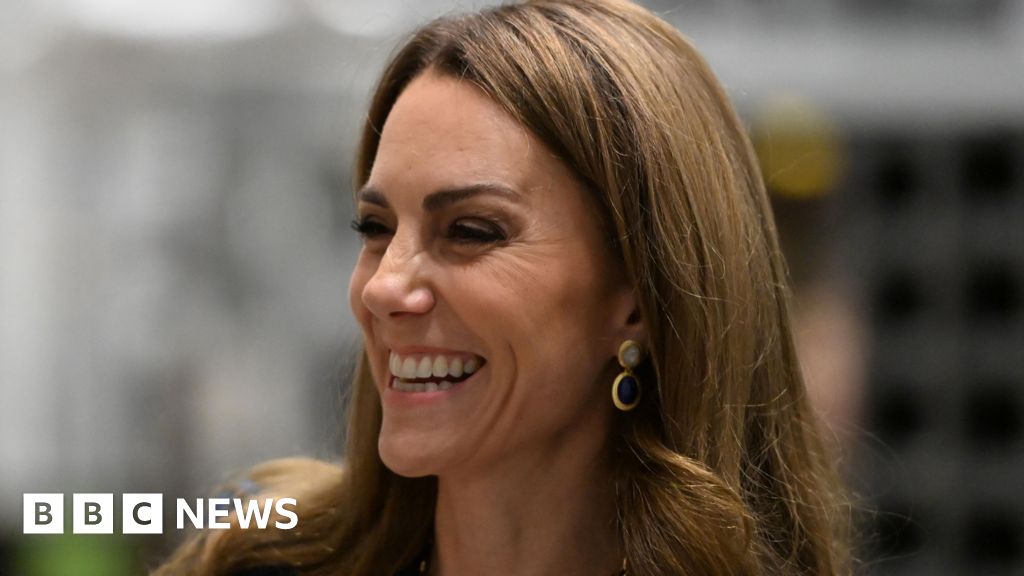ARTICLE AD BOX
By Mark Savage
BBC Music Correspondent
Image source, Meredith Truax
Image caption,Ruth Slenczynska is the last surviving pupil of Sergei Rachmaninoff
Former child prodigy Ruth Slenczynska is to release a new album at the age of 97, after signing a deal with the Decca record label.
The pianist, who gave her first recital aged four, recorded My Life In Music last year, featuring music by Sergei Rachmaninoff and Frederic Chopin.
She called the project "unbelievable", adding: "Whoever heard of a pianist my age making another album?"
Slenczynska turns 97 on Saturday, and her album is due on 18 March.
She has been performing since the 1920s, when she was heralded one of the greatest child prodigies since Mozart.
Her concerts were "an electrifying experience," wrote the New York Times after one early concert, "something nature has produced in one of her most bounteous moods".
Warning: Third party content may contain adverts
She made her debut in Berlin at age six and in Paris at age seven; and is considered to be Rachmaninoff's last living pupil, often wearing a Faberge egg necklace that he gave to her.
Her other teachers were legendary, too - Josef Hoffman, Alfred Cortot, Egon Petri, Artur Schnabel; and she studied alongside Samuel Barber, hearing his world-famous Adagio for Strings in the classroom, before it even had its title.
She played a four-handed Mozart duet with President Harry S Truman, performed at President John F Kennedy's inauguration and was recognised by President Ronald Reagan as the first American woman to celebrate a 50-year concert career.
Forbidden childhood
Born in Sacramento, California, Slenczynska's father, Josef Slenczynski, was a well-known violinist and head of the Warsaw Conservatory before being wounded during World War One.
After moving to America, he resolved to raise a successful musician, and deemed his daughter a potential pianist or violinist within hours of her birth.
By the age of three, she was versed in basic musical theory and harmony - but the punishing schedule of touring and practice imposed by her father caused great emotional stress, and by the age of 15 she withdrew from performing.
In her 1957 autobiography, Forbidden Childhood, Slenczynska revealed just how strict her father's regime had been.
"The reason that people were startled at what I could do at the piano was quite simple," she wrote. "Father was making me practice nine hours a day, every single day of the week.
"If I showed signs of wanting to be just an ordinary little girl, like wanting to cuddle my sisters' dolls or make a little noise or jump up and down and run with the neighbourhood kids, father would come down on me with his pail of ice-cold water: 'That's all baby stuff! You're not a baby. You're a musician. Stay away from those kids and their stupid games. It's all a waste of time! You've got to act like a grown-up young lady.'"
Image source, Southern Illinois University
Image caption,Slenczynska went on to become a respected teacher and mentor
After rejecting her concert career, she cut off her father completely, enrolled for a psychology degree at the University of California and eloped with a fellow student.
But she never stopped playing, and re-emerged on the concert stage in 1951, with a performance at the Carmel Bach Festival.
Thereafter, she toured with the Boston Pops orchestra for four years, enjoying an on-stage rivalry with conductor Arthur Fiedler.
"At first, Mr Fiedler got standing ovations, and I didn't," she told the St. Louis Post-Dispatch in 1999. "By the third year, I started getting them, too. I learned how to manage an audience, how to let them know you're glad to be there."
Finally, there was a concert in Chicago where a critic praised Slenczynska at Fiedler's expense, writing: "You don't serve champagne and beer together."
"After that, I was not renewed," she later remarked. "There was room for only one star on that tour."
'Sustained excellence'
Undeterred, she went on to record 10 sparkling LPs for Decca, showcasing her sense of drama and rhythmic control, especially when playing her speciality - the works of Chopin.
In 1961, she wrote a textbook - Music at Your Fingertips: Aspects of Pianoforte Technique - which remains in print, and later joined the Southern Illinois University at Edwardsville, first as an artist-in-residence, then as a faculty member.
To this day she remains a fluid and lyrical player - and, during the first Covid-19 lockdown in 2020, uploaded home recordings of Beethoven's Sonatas to YouTube, to celebrate his 250th anniversary.
Warning: Third party content may contain adverts
Slenczynska will also celebrate her 97th birthday with a recital at Lebanon Valley College, Pennsylvania, on 6 February
"It's remarkable to think that Ruth made her concert debut before the birth of colour movies, and around the same time as the birth of television," said Laura Monks and Tom Lewis, co-presidents of the Decca Label Group.
"The fact that she is still at the top of her game over nine decades later is extraordinary. It's very hard to think of anyone, in any profession, who has achieved such a sustained period of excellence."
Label director of Decca Classics, Dominic Fyfe, added: "We are privileged to have Ruth record for Decca again, some 66 years since she first recorded for the label in New York.
"One of her earliest producers was Thomas Frost and we were delighted to unite her with Thomas's son David, the multi Grammy award-winning producer, for this new album."
Follow us on Facebook, or on Twitter @BBCNewsEnts. If you have a story suggestion email entertainment.news@bbc.co.uk.

 3 years ago
51
3 years ago
51








 English (US) ·
English (US) ·